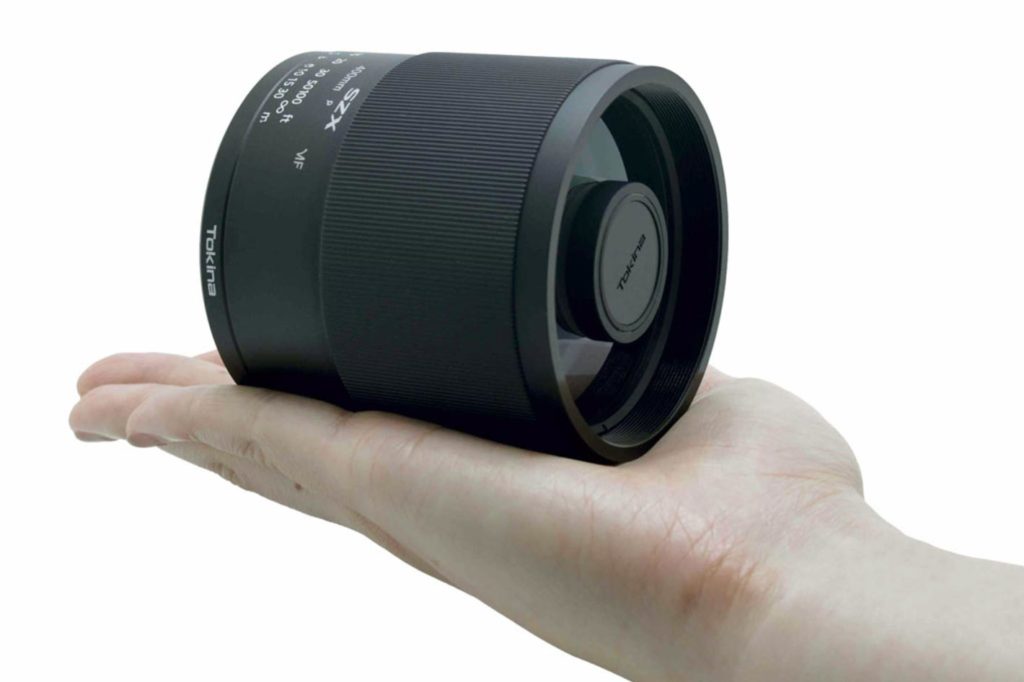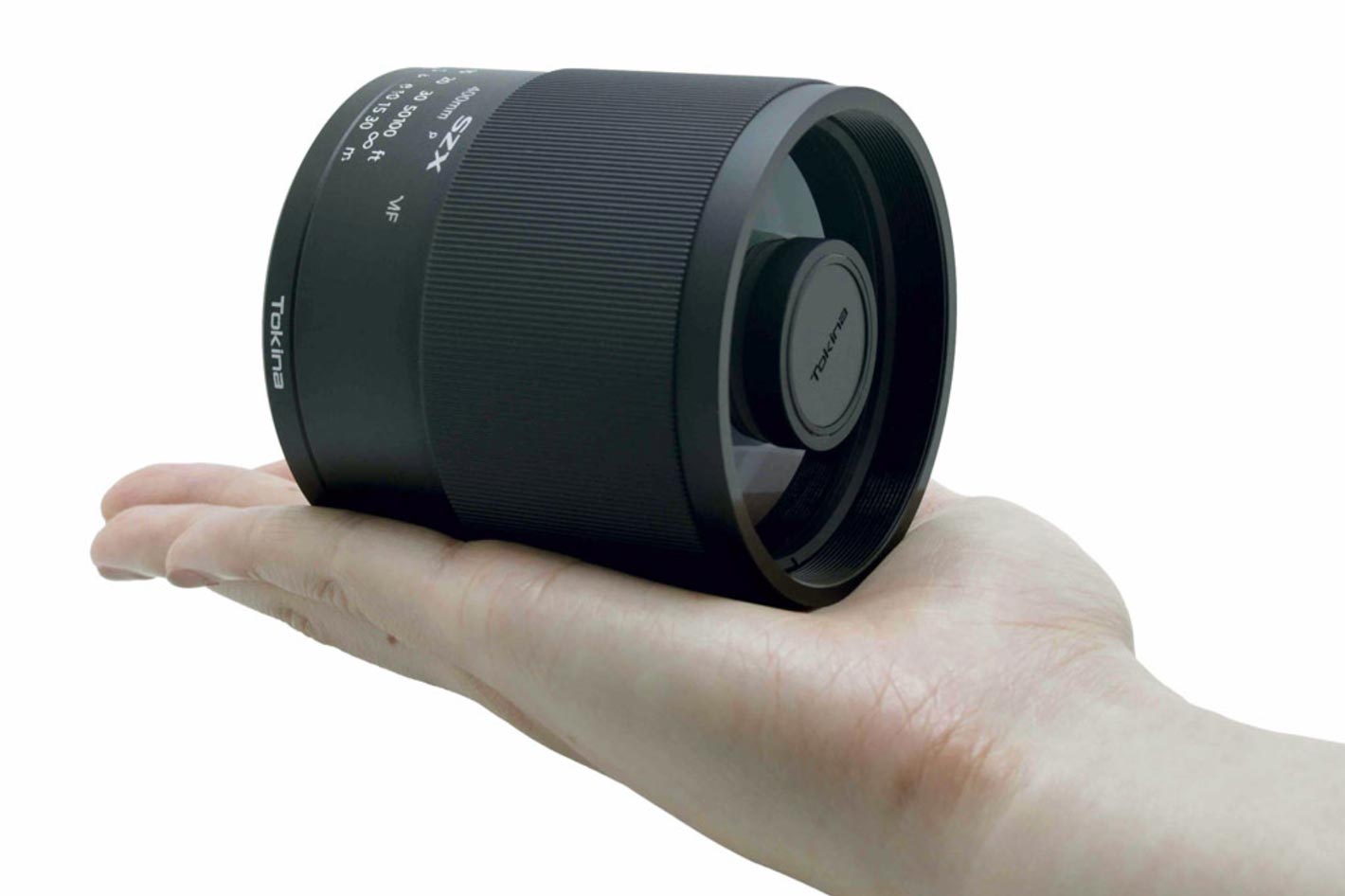 Tokina has a new 400m lens that adopts a catadioptric type optical design with a constant F8 aperture and is a lightweight and compact solution… if you don’t mind the doughnuts.
Tokina has a new 400m lens that adopts a catadioptric type optical design with a constant F8 aperture and is a lightweight and compact solution… if you don’t mind the doughnuts.
Recently, I mentioned here at ProVideo Coalition how the new 600 and 800mm f/11 telephotos from Canon for its RF mount mirrorless system reminded me of catadioptric lenses, which were very popular decades ago, but somehow seem to have vanished from the market, although companies as Samyang/Rokinon keep offering catadioptric solutions. Now, Tokina – who recently introduced a new lens in the atx-i series -, adds its own reflex solution, with the Tokina SZX SUPER TELE 400mm F8 Reflex MF lens, which offers a compact alternative to standard tele photo lenses.
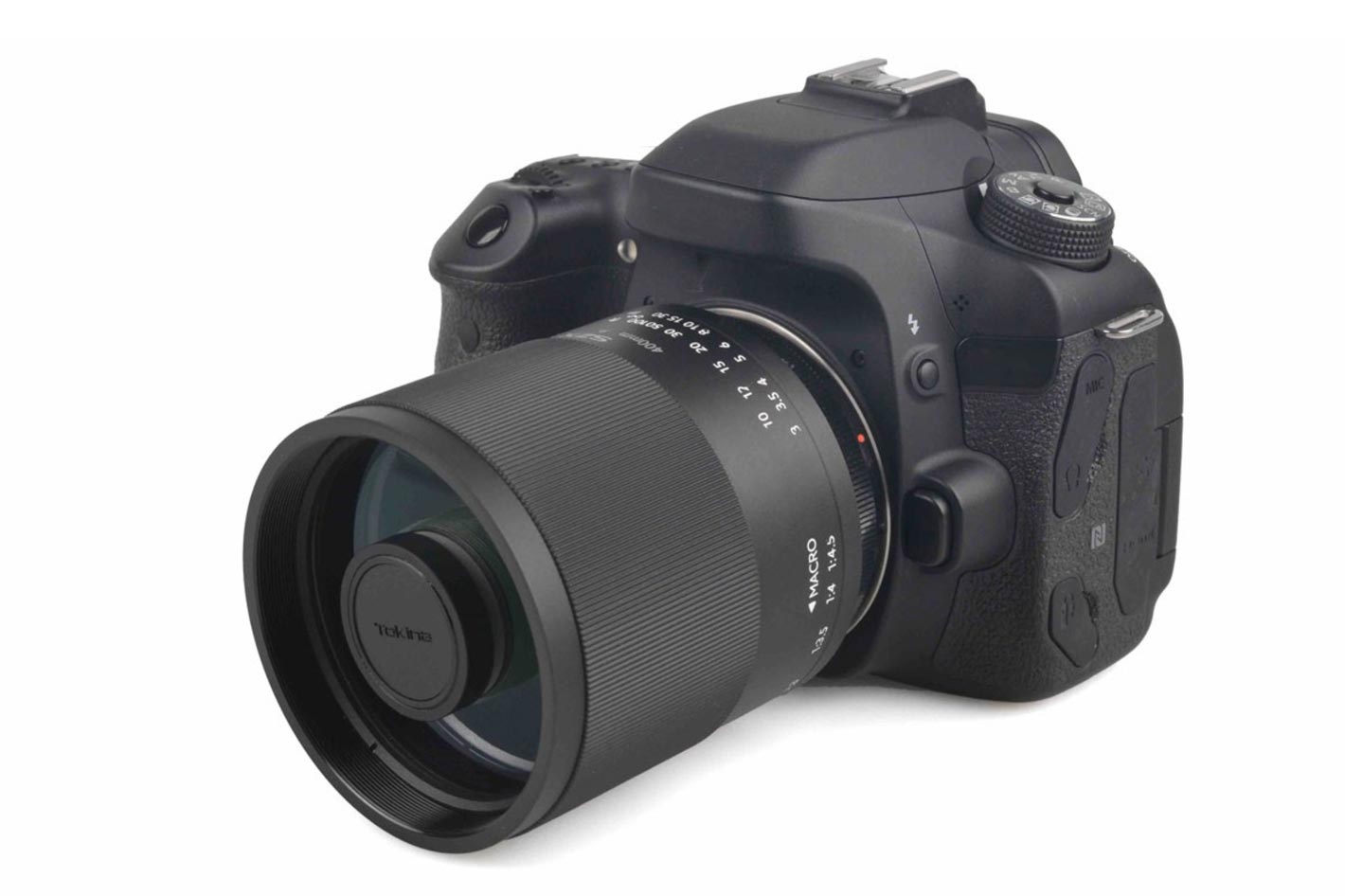 Tokina’s reasoning for this announcement is simple: more and more photographers are looking for easy-to-carry gear, and Canon’s new telephotos, made for Canon’s EOS R mirrorless system are a sign that companies are listening. Tokina’s lens picks a tested solution and provides those using other cameras with a not so long, but much lighter and compact lens, the SZX SUPER TELE 400mm F8 Reflex MF.
Tokina’s reasoning for this announcement is simple: more and more photographers are looking for easy-to-carry gear, and Canon’s new telephotos, made for Canon’s EOS R mirrorless system are a sign that companies are listening. Tokina’s lens picks a tested solution and provides those using other cameras with a not so long, but much lighter and compact lens, the SZX SUPER TELE 400mm F8 Reflex MF.
Tokina states that the 400mm F8 Reflex MF is designed keeping in mind active travel photographers seeking for outdoor landscape, wild nature or birds by providing compact and lightweight lens to be rediscovered in the new era of also compact but high-tech mirrorless cameras. With dimensions of 74×77 mm and a weight of 355g, this 400mm f/8 is unbeatable in terms of portability, but photographers have to understand mirror lenses always represent a compromise.
 Doughnuts are always free
Doughnuts are always free
One of the key characteristics of the design of these lenses is the annular profile of out of focus areas, which create doughnut-shaped bokeh. I mentioned the fact in my recent article about the 600 and 800mm Canon lenses, noting that with catadioptric lenses “Doughnuts were always free…”, but it’s important to highlight that aspect here, as the effect is widely visible in most of the pictures published by Tokina in a gallery.

If you can live with the doughnut-shaped bokeh, you also have to remember that the Tokina SZX SUPER TELE 400mm F8 Reflex MF lens is a manual focus lens and its aperture is fixed. Having said this, the lens offers a minimum focusing distance of 1.15m, which offers a 1:2.5 magnification, meaning you can do some “macro” or close-up work with it.
Note that a lens like the original Canon EF 100-400mm f/4.5-5.6L IS USM has a close focus distance of 1.80m and the Canon EF 100-400mm f/4.5-5.6L IS USM II can focus closer, at 98cm, so this Tokina does rather well, meaning it can be used for anything from landscape down to flower photography, an area where I would not mind trying to use it, just for the fun and challenge of trying to do the same type of work I can achieve with the Canon’s.
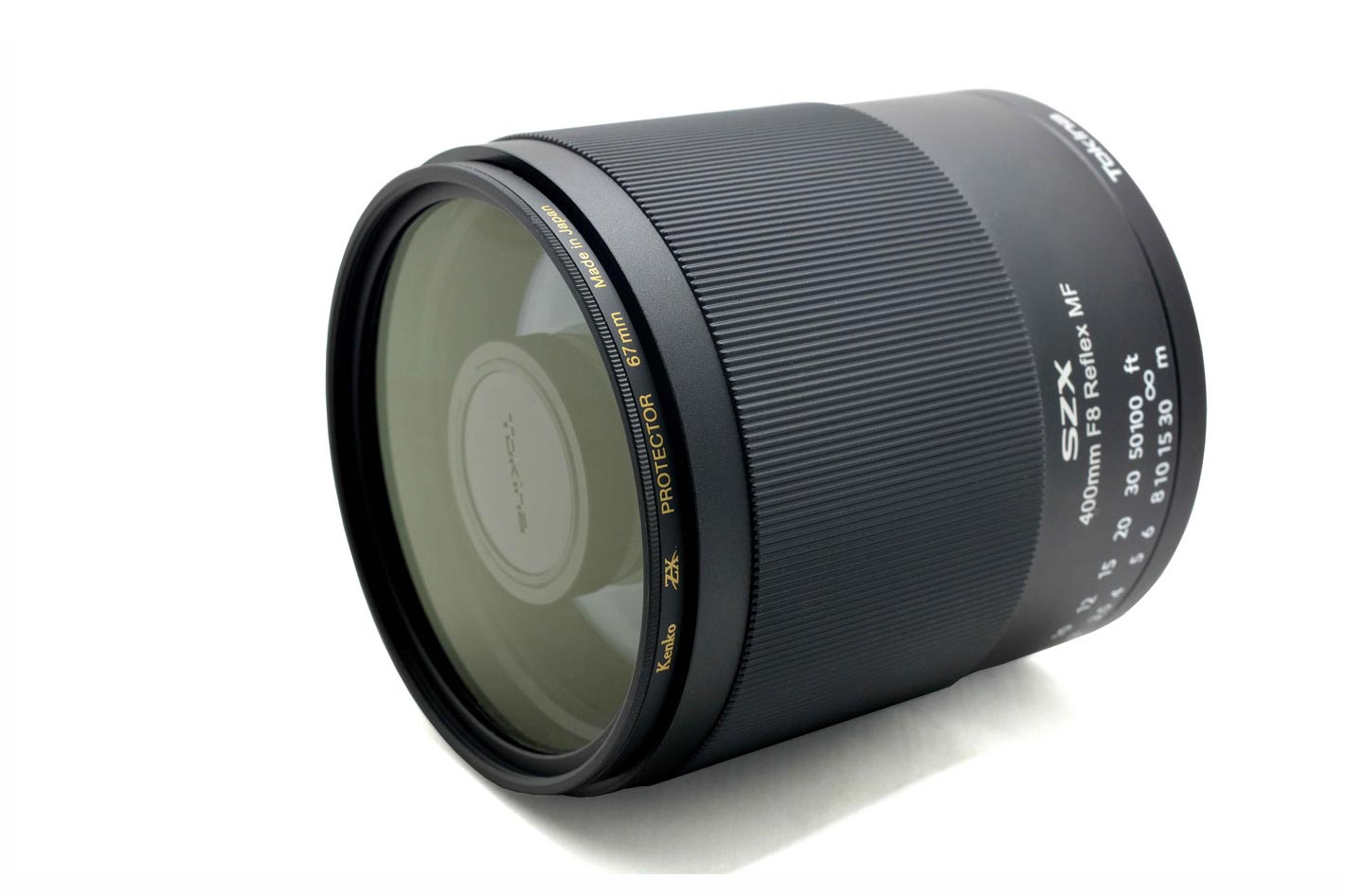 Canon’s catadioptric lens
Canon’s catadioptric lens
Canon did have plans to produce a catadioptric lens in 2017, according to a patent registered then, but the 400mm F5.6 lens in the drawings never materialized. With the move to mirrorless and the new options made available by the optical system and the RF Mount, maybe Canon decided to go for the 600mm and 800mm F11 telephotos now announced, which can use the AF of the new cameras, something that is always hard to implement in mirror or reflex lenses.
Many will say that catadioptric lenses are out of fashion, inconvenient gear due to fixed aperture, manual focusing and absence of image stabilization. Canon just made the “fixed aperture” less of a problem, so suddenly a mirror lens like the SZX SUPER TELE 400mm F8 Reflex MF has more chances to attract attention. Tokina also challenges photographers to “rediscover all advantages of reflex type lenses again, by using it with contemporary mirrorless cameras.” They may have a point, there!
What Tokina says is that with modern focusing systems, which offer focus assist functions like focus peaking, it has become easier to find the sharpest focus point. Another valid point has to do with the built-in multi-axis advanced image stabilization systems of mirrorless cameras – from Sony, Fujifilm and Micro Four Thirds – which, says Tokina, “ will make you forget about blurred images due to hand shaking.”
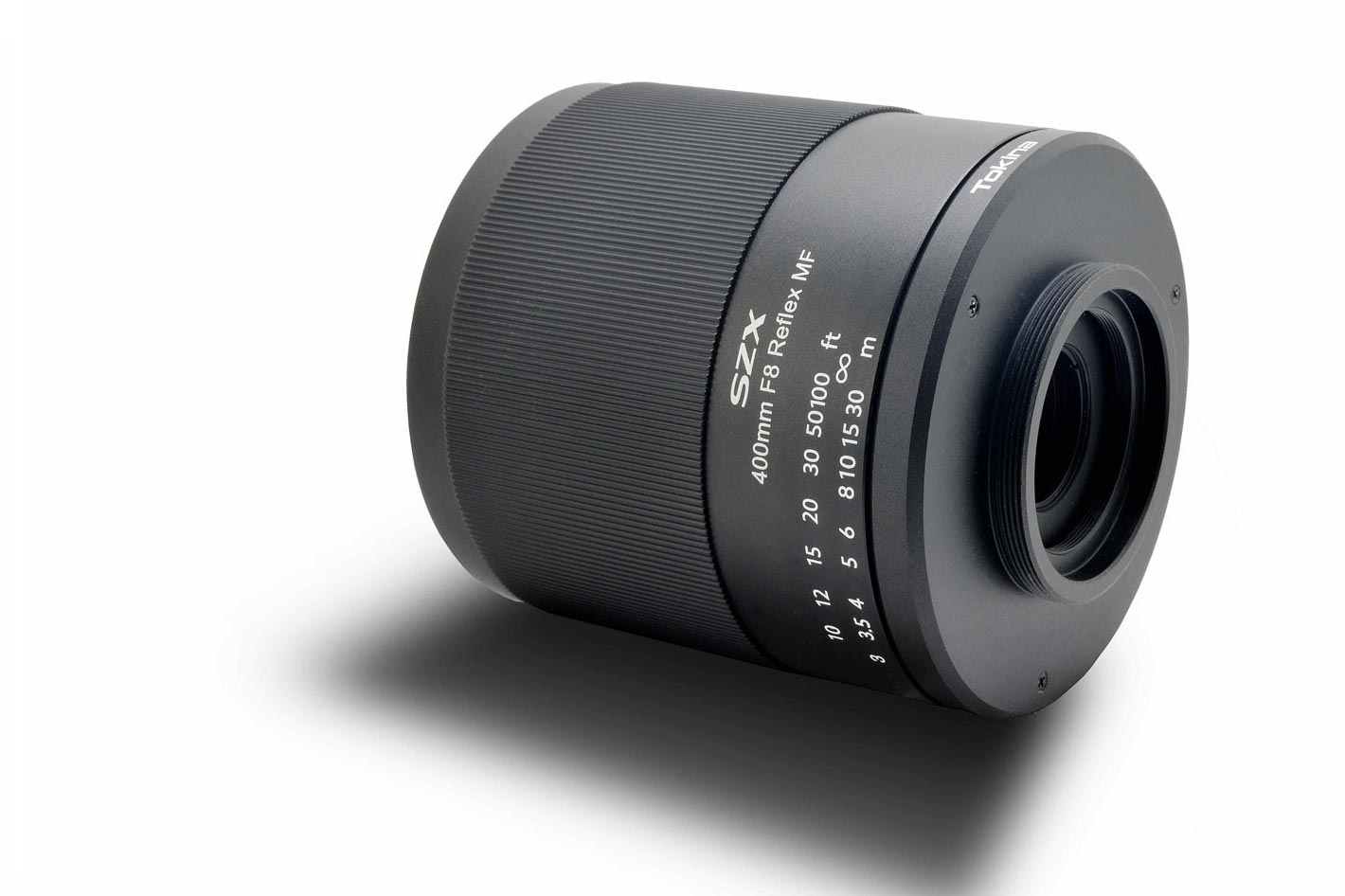 The Tokina reflex is a 800mm f/8 in MFT
The Tokina reflex is a 800mm f/8 in MFT
Back when catadioptric lenses were – more – common, photographers always faced a problem, due to the ISO limitations: using transparency film, we worked at 50 or 100 ISO, meaning an aperture of f/8 was not always usable. With the new cameras, both DSLRs and mirrorless, featuring advanced wide ISO settings, it’s easier to use higher shutter speeds and still have clear, noise free images.
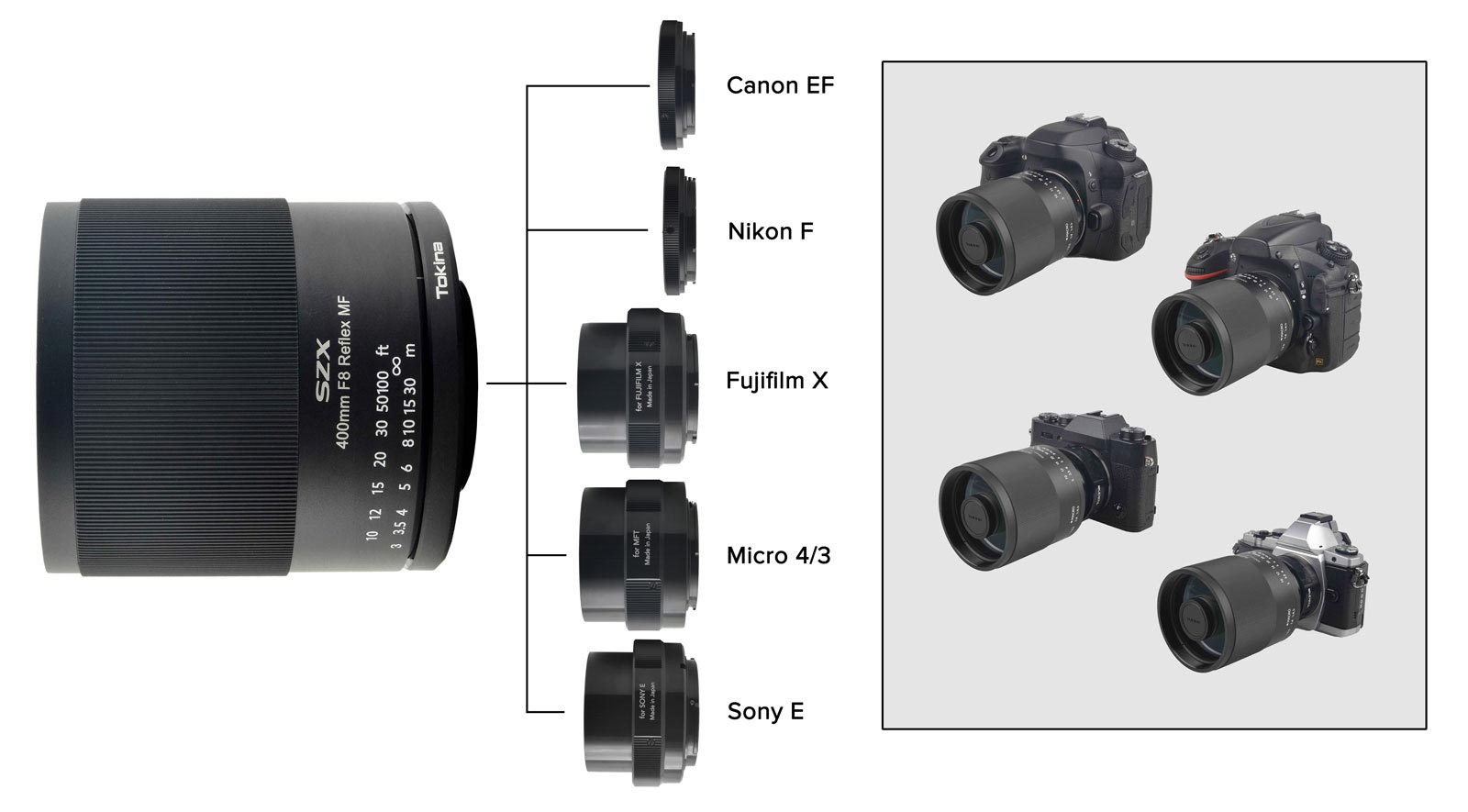 One important thing to remember: this 400mm lens is for full frame, meaning it becomes, in fact, a 640mm f/8 lens when used with an APS-C body, and a 800mm f/8 lens when used with Micro Four Thirds. Another important aspect: although Kenko Tokina has an old 400mm f/8 mirror lens, the design is apparently different, meaning this is not just a cosmetic update of that lens.
One important thing to remember: this 400mm lens is for full frame, meaning it becomes, in fact, a 640mm f/8 lens when used with an APS-C body, and a 800mm f/8 lens when used with Micro Four Thirds. Another important aspect: although Kenko Tokina has an old 400mm f/8 mirror lens, the design is apparently different, meaning this is not just a cosmetic update of that lens.
The Tokina SZX SUPER TELE 400mm F8 Reflex MF adopts 0.75mm pitch and 42mm thread mount standard, that allows this lens to be attached to any camera by using different mount adapters. The lens is also available for Nikon F, Canon EF, Sony E, Fujifilm X and Micro 4/3, through an adapter. Sales will commence on August 7, 2020. Price? No mention of it yet! But mirror lenses are usually inexpensive.A Rokinon 500mm f/8, if you can find it, costs around $200!

Filmtools
Filmmakers go-to destination for pre-production, production & post production equipment!
Shop Now